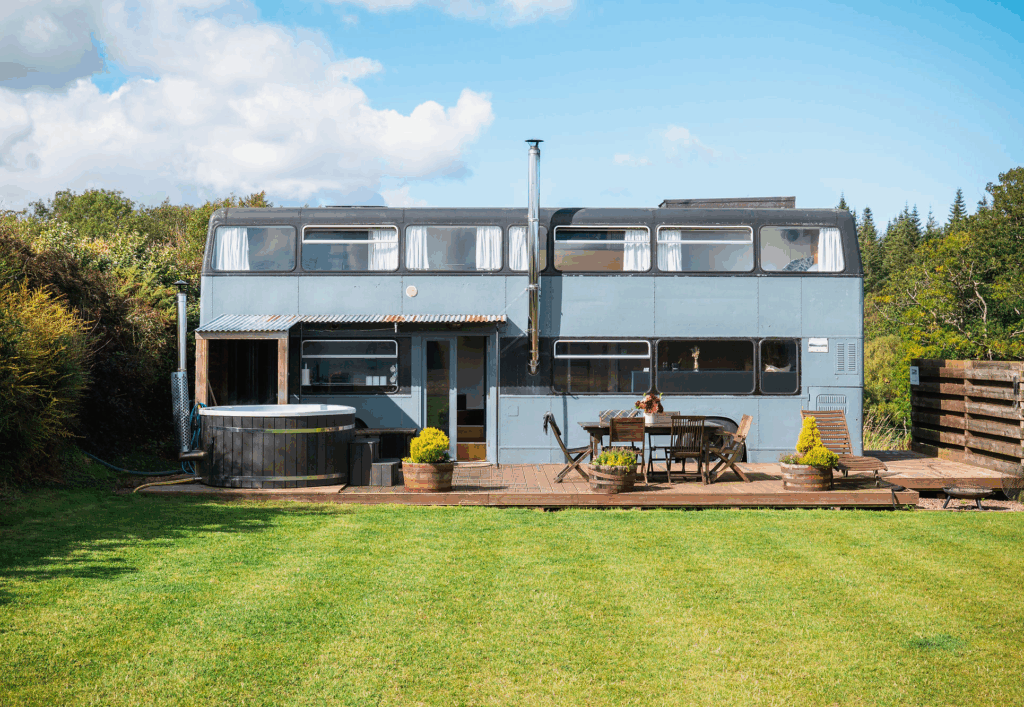A family-run farm and glamping business near Gifford has been recognised in the Camping and Glamping Awards 2025, earning the title of Scotland’s best glamping site and a runner-up position for the most unique site in the UK.
The Bus Stop, which opened its first staycation in 2017, received the distinction during the national awards programme operated by Campsites.co.uk.
Co-owner Sandy Stewart said the recognition reflects the team’s continued focus on guest experience. “This is the first time we have won Scotland’s best, so that was really nice to hear,” he told the East Lothian Courier. He explained that much of the judging came from online reviews. “
A lot of the judging was based off public online reviews, and the judges said ours were head and shoulders above a lot of others, so that was great for us. We’re big on making sure the buses are as perfect as possible every time, and the help we get from all our staff makes that possible.”

The business, operated by Sandy, his wife Sioned, and his parents Balfour and Elaine, has grown gradually over the years. Each glamping unit is converted from a salvaged bus and is equipped with self-catering facilities, a wood-fired hot tub, and a sauna.
The family continues to run the surrounding mixed farm, which has been in operation for generations. Farm tours and guest engagement have become a core part of the business model, contributing to repeat visits and helping broaden its appeal.
Sandy said the team was also pleased to be recognised nationally. “The novelty of the bus draws people in, but the quality of the experience is what brings them back,” he said. He added that the family intends to maintain a personalised approach.
“We never want to drift too far into the hotel side of things, it is the personal touch that matters. We’ve purposely taken it slowly, building the site from scratch, and this is the first year we feel comfortable opening up more to the community.”
The site closes its overnight stays during the winter months, but 2025 marks the launch of its new wellness day experiences. These day bookings allow visitors to use the converted buses and their amenities without staying overnight.
The business also continues to offer farm experience tours that give guests insight into daily operations, animal care, and food production.
Sandy said the rural setting plays a significant role in guest expectations. “A lot of people come from cities for that rural, wild, wellness experience,” he said. He noted that guests often arrive unfamiliar with basic outdoor tasks.
“It’s amazing how many people come who’ve never lit a fire before. By the time they leave, they’ve mastered the stove, the hot tub fire and the fire pit outside, they all go home feeling like little fire masters. And now there’s a real ‘Clarkson’s Farm’ influence, people love seeing how it actually works.”
For professionals in the outdoor hospitality sector, The Bus Stop’s approach underscores continued consumer interest in unique, experiential stays and the value of integrating agricultural education, wellness activities, and personalised service.
Its gradual development model and emphasis on maintaining a working farm alongside visitor accommodation reflect strategies increasingly used by operators seeking to diversify revenue and broaden their appeal without losing their rural identity.


